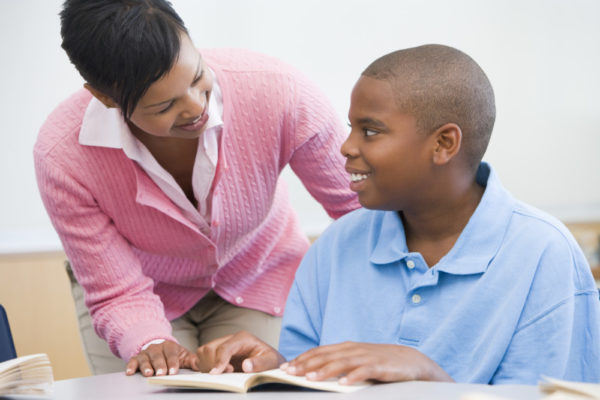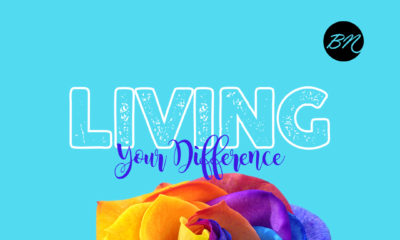Features
Love without Boundaries with Bukola Ayinde: How to Achieve a Truly Inclusive Education System for Children with Disabilities
 A few weeks ago, I spoke at a parents and teachers conference on promoting inclusive education. I told the teachers that in a few years’ time they would be required to obtain inclusive teaching skills to meet diverse students’ needs in their classrooms.
A few weeks ago, I spoke at a parents and teachers conference on promoting inclusive education. I told the teachers that in a few years’ time they would be required to obtain inclusive teaching skills to meet diverse students’ needs in their classrooms.
I told them that a time will come it would be a trend to have a child with special needs in their schools. This is because having special needs students in your classrooms will show the level of acceptance, creativity and technology advancement the school has to offer every child that attends their classes.
It will also prove to the parents that no child will be left behind with his/her studies. I encouraged the teachers to prepare for that day.
It may seem like this is farfetched but I must tell you that the world is gradually embracing inclusion.
Last year, I visited a public primary school in Lagos Mainland, Nigeria. The school accepts children with disabilities, so the school is referred to as an inclusive unit.
However, in reality, the school is anything but certainly not an inclusive unit.
What is Inclusive Education? According to Inclusive Education Guide for Families, it is:
- One system of education for all
- Individualised for each child or learner
- It is child-centred, and listens to all perspectives
- A system which meets the particular needs of every child
- A system capable of modifying itself to respond to the needs of the most vulnerable
- A system where every child has equal opportunity
- It is not static, it’s a process which continually develops our understanding of how we can best accommodate each person.
The inclusive school I visited in Lagos mainland kept about 80 special needs children in two classes. During break time all the children in the regular classes came out to play but the special needs kids remained in their classrooms. The two classes had children with different disabilities, hearing impaired, cerebral palsy, learning disability and Autism. I wondered how they were been taught. The teachers are more focused at providing vocational skills than teaching numeracy and literacy. The teachers, I believe are trying their best but you can’t give what you do not have.
The inclusive unit has only one care giver, an elderly woman. They are short of well trained staff. As at the time of my visit, there were no trainers in their vocational room.
My question is this: what are the children learning?
If I am to attempt to answer this question, for that person that created the inclusive unit, the fact that the children can leave their houses in the morning and their parents can say they have gone to school is simply adequate.
You may say the children are treated this way because it is a public school but there are many private schools who run this model of teaching children with special needs—segregation. Some private mainstream schools collect lots of money from parents who have children with special needs on the claim that they are practicing inclusion. However, what the schools do not tell the parents is that their children are kept in a separate class away from their peers. The children are hidden in a classroom where visitors to the school cannot see them.
Some private schools only teach the children nursery rhymes and the kids are never promoted from that class.
What are the principles guiding Inclusive Education? According to Inclusive Education Guide for Professionals:
Diversity enriches and strengthens all communities
All learners’ different learning styles and achievements are equally valued, respected and celebrated by society
All learners to be enabled to fulfil their potential by taking into account individual requirements and needs
Support to be guaranteed and fully resourced across the whole learning experience
All learners need friendship and support from people of their own age
All children and young people to be educated together as equals in their local communities
Inclusive Education is incompatible with segregated provision both within and outside mainstream education.
The United Nations Convention on the Rights of Persons with Disabilities, Article 24 states:-
1. States Parties recognize the right of persons with disabilities to education. With a view to realizing this right without discrimination and on the basis of equal opportunity, States Parties shall ensure an inclusive education system at all levels and lifelong learning directed to:
a. The full development of human potential and sense of dignity and self-worth, and the strengthening of respect for human rights, fundamental freedoms and human diversity;
b. The development by persons with disabilities of their personality, talents and creativity, as well as their mental and physical abilities, to their fullest potential;
c. Enabling persons with disabilities to participate effectively in a free society. (full text of article 24 can be found at appendix 1)
Therefore, I can boldly say that inclusive education is not what you do out of sympathy, nor what you pay lip service to. It is not what you do solely to generate another source of income but it is what you do because it is the fundamental right of every child living with disability to go to school with his or her peers.
Dear school owners,
Accepting children with special needs into your schools is not enough. We want our children to be truly included.
Photo Credit: © Monkey Business Images | Dreamstime.com

























